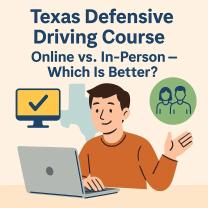Are online college classes easier than on campus?
The difficulty of online college classes versus on-campus courses is subjective and depends on various factors, including the individual's learning style, the course content, the instructor's teaching approach, and the level of support provided. Both online and on-campus courses have their own set of advantages and challenges, and what may be perceived as "easier" can vary from person to person. Here are some factors to consider when comparing online college classes with on-campus courses:
Online College Classes:
Advantages:
Flexibility: Online classes offer greater flexibility in terms of when and where you can access course materials. This can be beneficial for individuals with work or family commitments.
Accessibility: Online courses allow students to participate from virtually anywhere, eliminating the need for commuting or relocating.
Self-Paced Learning: Some online classes are self-paced, allowing students to progress through the material at their own speed.
Technology Use: Online classes leverage digital tools and resources, providing opportunities for multimedia learning and virtual collaboration.
Diverse Learning Styles: Online courses cater to a variety of learning styles, as they often include a mix of video lectures, interactive content, and written materials.
Challenges:
Self-Discipline: Success in online classes requires strong self-discipline and time management skills. Procrastination can be a challenge.
Limited Face-to-Face Interaction: Online classes may have less direct interaction with instructors and peers compared to on-campus courses.
Technical Issues: Technical problems, such as internet outages or software issues, can occasionally disrupt the learning experience.
On-Campus Courses:
Advantages:
In-Person Interaction: On-campus courses provide direct, in-person interaction with instructors and classmates, fostering a sense of community and collaboration.
Immediate Feedback: Instructors can provide immediate feedback during class discussions, allowing for real-time clarification of concepts.
Structured Schedule: On-campus courses often follow a structured schedule, providing routine and a set time for learning activities.
Access to Resources: Students have direct access to campus facilities, libraries, labs, and other resources.
Hands-On Activities: Courses that involve hands-on activities, labs, or group projects may be more easily facilitated in an on-campus setting.
Challenges:
Fixed Schedule: On-campus courses typically have fixed schedules, which may be less accommodating for students with work or family commitments.
Commute: Students may need to commute to campus, which can be time-consuming and may incur additional costs.
Less Flexibility: On-campus courses may offer less flexibility for students who prefer self-paced learning or need to balance multiple responsibilities.
Limited Accessibility: For students in remote areas or those with physical disabilities, accessing on-campus courses may be challenging.
Conclusion:
The perception of whether online college classes are "easier" than on-campus courses varies widely. Some students thrive in the flexible, self-paced environment of online classes, while others prefer the structure and immediate feedback of on-campus courses.
Ultimately, success in either format requires commitment, engagement, and effective time management. It's important for students to assess their own learning preferences, consider their personal circumstances, and choose the format that aligns with their needs and goals. Additionally, the quality of the course content, instructor expertise, and the level of support provided by the institution can significantly impact the overall learning experience, regardless of the course format.
Difficulty Level of Online vs. On-Campus College Classes:
1. Difficulty Level Comparison:
While the perceived difficulty of online and on-campus college classes can vary depending on individual factors and course design, there isn't a definitive answer to whether one is inherently more difficult than the other.
Factors Impacting Difficulty:
Several factors contribute to the perceived difficulty of online courses:
- Learning Style: Students who prefer self-directed learning and independent work may find online classes less challenging than those who thrive in structured classroom environments.
- Time Management: Online courses require strong time management skills as students manage their own pace and schedule. Poor time management can lead to procrastination and increased stress.
- Technical Skills: Students need basic technical skills to navigate the online learning platform, use online tools, and troubleshoot issues.
- Course Design and Delivery: The quality of the online course design, instructor engagement, and availability of support resources significantly impact difficulty perception.
- Motivation and Self-Discipline: Online learning requires strong self-motivation and self-discipline to stay engaged and complete coursework.
3. Managing Workload and Challenges:
Students can overcome challenges and manage the workload of online college classes by:
- Developing a schedule: Create a dedicated study schedule and stick to it to stay on track with deadlines.
- Staying organized: Utilize online tools and resources like calendars, to-do lists, and note-taking apps to stay organized and manage assignments.
- Actively engaging: Participate in online discussions, ask questions, and seek clarification from instructors whenever needed.
- Building a support network: Connect with classmates, form study groups, and utilize available support services like online tutors or academic advisors.
- Taking breaks and managing stress: Schedule time for relaxation and self-care to avoid burnout.
- Communicating openly: Communicate any challenges or concerns with the instructor or support services to find solutions and avoid falling behind.
Overall, the level of difficulty in online and on-campus college classes depends on various factors. By understanding these factors, choosing courses that align with your learning preferences, and utilizing available resources, students can effectively manage the workload and navigate the complexities of online learning.













